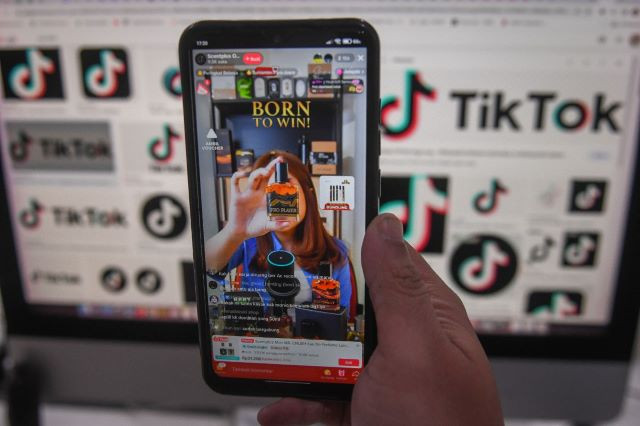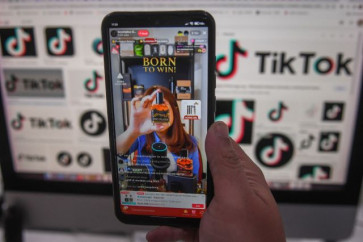Popular Reads
Top Results
Can't find what you're looking for?
View all search resultsPopular Reads
Top Results
Can't find what you're looking for?
View all search resultsCan Indonesian SMEs survive without TikTok’s Project S?
While the government's heart was in the right place when it banned social commerce, it would do well to keep in mind that the digital age is upon us and waits for no one: our MSMEs need not only protection, but also fortification through the provision of tools so they can innovate and join the competition.
Change text size
Gift Premium Articles
to Anyone
R
ecently the buzzword “Skintific China” trended across social media platforms in Indonesia. This is because the skincare brand, which has significant share of the local market, is actually distributed by a Chinese firm, raising concern that Indonesian micro, small and medium enterprises (MSMEs) are losing even on their home soil.
The advent of Project S, TikTok’s brainchild that blurs the lines between e-commerce and social media (TikTok’s initiative to sell its own products on its app, similar to Amazon Basics), is a timely reminder of this threat. While digital platforms offer a lot of opportunities, the challenges they pose to our MSMEs, locally known as UMKM, are hard to ignore.
The data from Bank Indonesia is revealing: E-commerce transactions in 2022 were valued at a staggering Rp 476.3 trillion (US$31.7 billion), of which a huge 90 percent went to foreign producers. This outsized figure paints a challenging landscape for Indonesian MSMEs that struggle to advance in an increasingly borderless market.
This concern has reached the government, which has started issuing policies to prohibit social commerce platforms in the local market, including TikTok Shop. While TikTok still lags behind Shopee and Tokopedia, which took close to half of ASEAN’s gross merchandise value (GMV) last year, it is one of the fastest-growing platforms in e-commerce.
According to newly released Trade Minister Regulation (Permendag) No. 31/2023, the government has taken actions to first, regulate the use of social media only for promotional purposes. If a social media firm intends to engage in sales, it must establish a separate e-commerce firm in compliance with the existing regulations.
This is intended to prevent the misuse of data from social media accounts for the advantage of specific parties. In essence, TikTok Shop and similar services cannot operate unless their operators create a distinct e-commerce entity.
The second is to prohibit digital platforms from functioning as manufacturers. The third is to impose a minimum price of $100 per unit for foreign goods sold directly to Indonesia by merchants through cross-border e-commerce platforms.



















